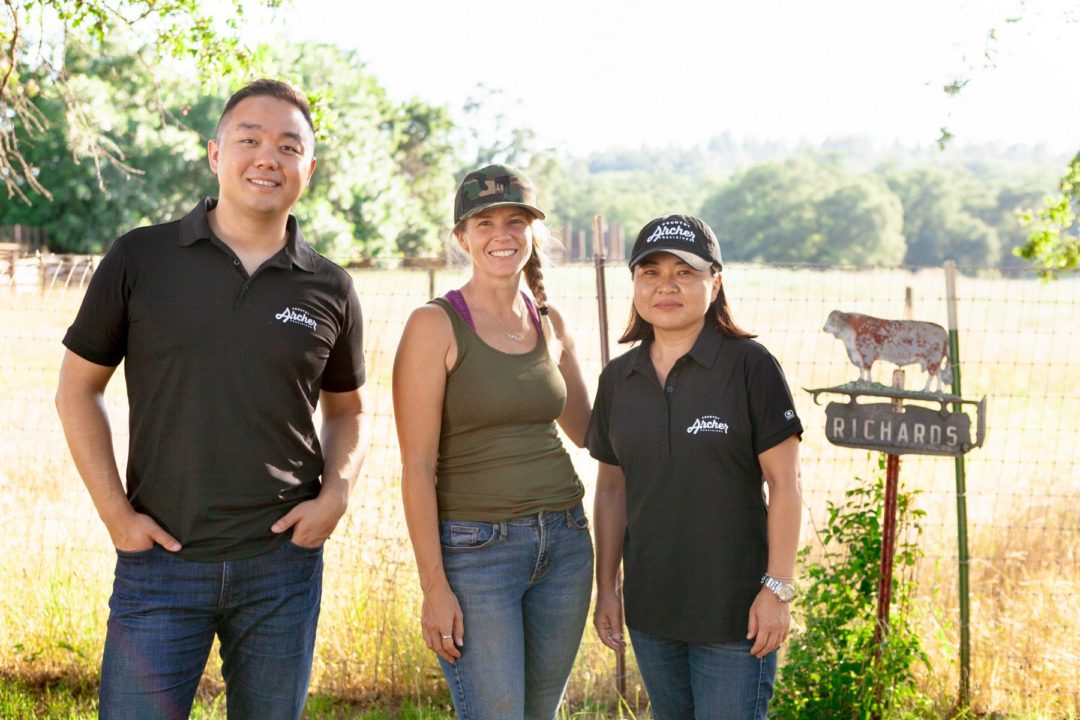“Since day one, our mission has been to craft real food to craft a better world, and Richards Grassfed is a shining example of the impact our collective food choices can make on the planet and our own health,” said Country Archer CEO Eugene Kang, in a press release. “By sourcing pasture-raised beef from a regenerative, local producer like Richards, we’re not only increasing accessibility of the highest quality nutrient-superior protein for more people, but we’re minimizing our carbon footprint and advancing regenerative farming practices domestically. We need more U.S. farms and ranchers like Richards making a tangible impact on soil health and the overall ecosystem. We’re incredibly proud to help build a more resilient and sustainable supply chain together.”
Richards Grassfed Beef, a 6,500-acre Northern Californian ranch circa 1941, has been Ecological Outcome Verified by the Savory Institute and practices regenerative land management by holistic grazing, fostering carbon sequestration and cultivating a biodiversity in the farm's ecosystem, the press release says. The ranch transitioned to practices that eliminate the use of chemicals and fertilizers, as well as resting pastures to avoid over-grazing, which led to an increase in biodiversity, a 10% increase in soil carbon levels, and a decrease of 360 tons of feed of hay consumption.
Related: #NaturallyInformed: Saving the Planet, Soil First Regenerative Agriculture in the Age of COVID-19 & Beyond Rodale: Shift to Regen Ag Could Sequester 100% of Annual Carbon Emissions
“We are a small family-owned farm, but we feel we have a role to play to further regenerative agriculture for the health of our planet and the future of farming,” said Carrie Richards, of Richards Grassfed, in the release. “We’re grateful to form this partnership with a brand like Country Archer to help us be able to stay true to the values we were built on and create a mutual beneficially partnership. Together, we’ll fulfill our mission of and commitment to the environment, continue to increase wildlife biodiversity, and provide the highest quality beef in the most transparent and sustainable way possible."










